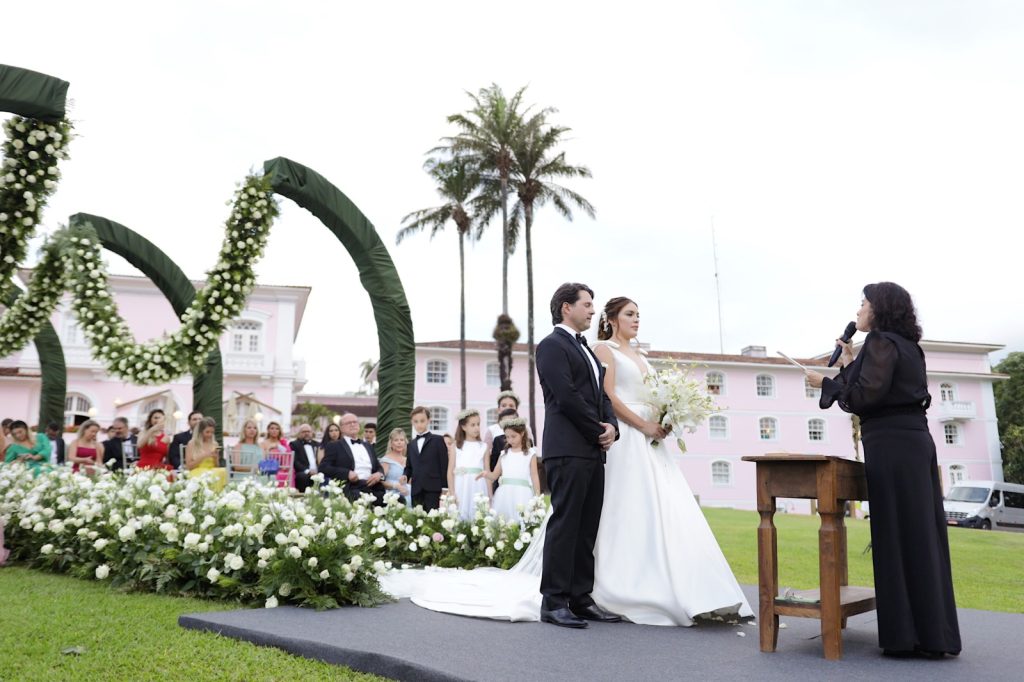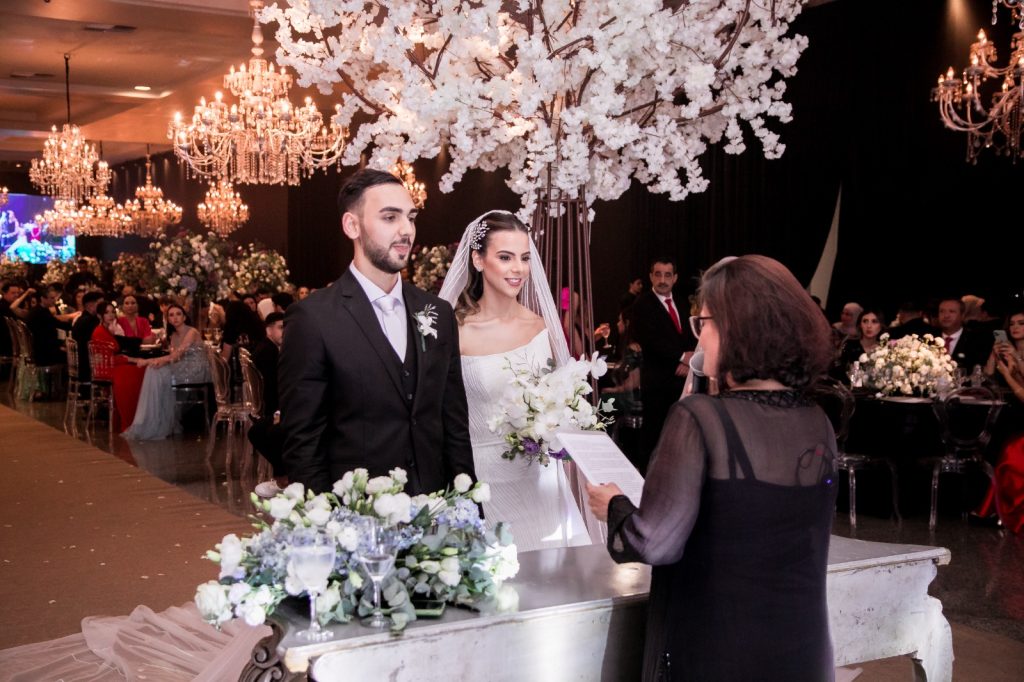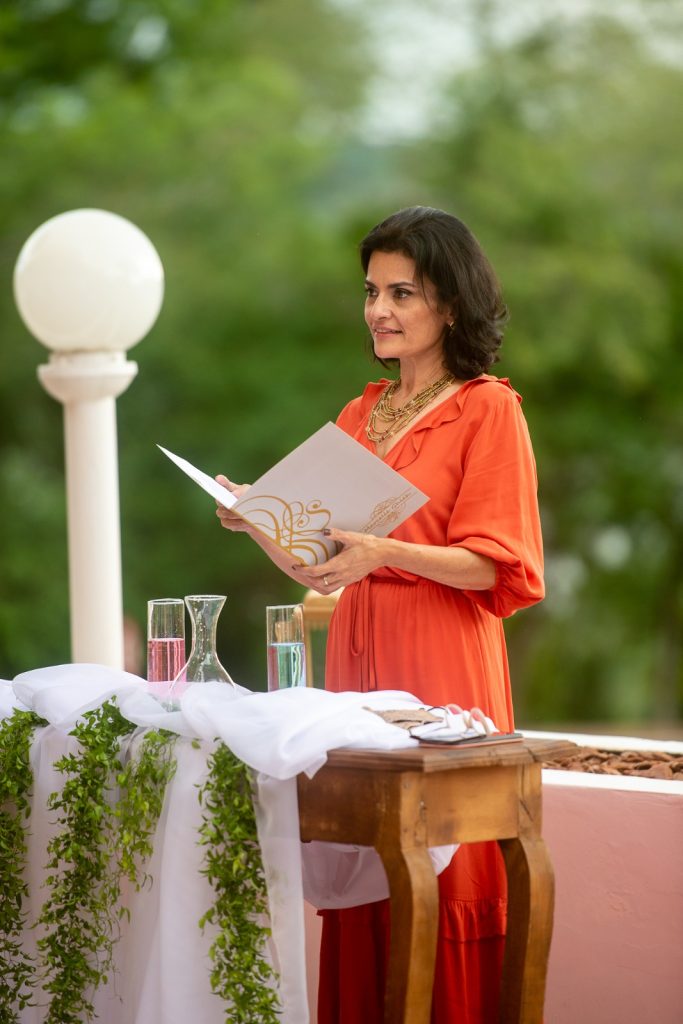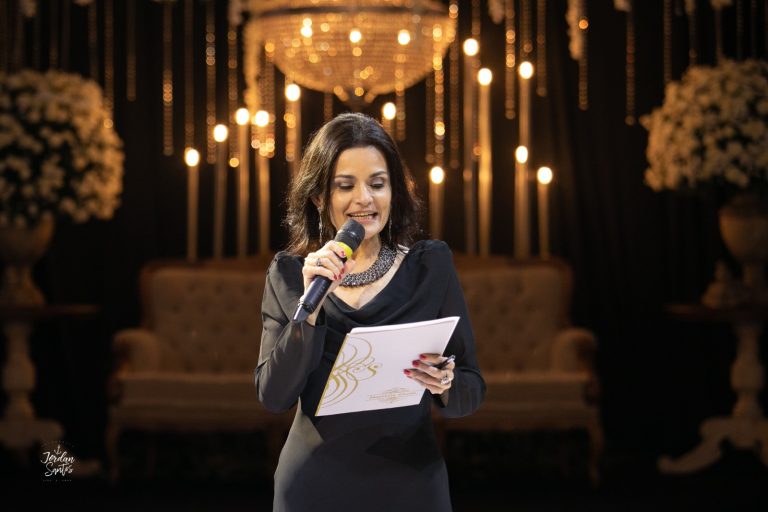São Paulo – The daughter of a Lebanese father and a Brazilian mother, Marcelle Ghieh, 55, was born in Lebanon but moved to Brazil with her family at the age of 12. From the beginning, her adaptation was quick and natural. Her ease in learning Portuguese and her close ties with the Arab community led to a life-changing job opportunity: becoming a wedding officiant for the Arab community.
“Despite my mother being Brazilian, she didn’t speak Portuguese at home. Like me, she also moved to another country at the age of 12, but she took the opposite path. She went to Lebanon and ended up spending most of her adult life there,” she recalls.
While living in Lebanon, Ghieh attended a Catholic school where she learned to speak French. This knowledge ended up helping her when learning Portuguese. After just two months of studying the language, she received the award for the highest Portuguese grade in the entire school.

After graduating from high school, she decided to pursue two degrees: Tourism and Law. “The latter ended up bringing me closer to the registry office in Foz do Iguaçu, a city in Paraná [state]. As a deputy clerk, I was able to officiate weddings,” she recalls.
“In the same year I started working at the registry office, I officiated my first wedding in both Arabic and Portuguese. I married two Arab brothers to two foreign women—one from Canada and the other from the United States. They wanted their native language to be spoken during the ceremony. The legally required parts were in Portuguese, but the rest was in Arabic.”

After that first wedding in 1993, word quickly spread that there was someone in the city who could officiate ceremonies in Arabic.
In ten years, Ghieh estimates she has conducted over a thousand ceremonies. Beyond weddings, she also began assisting the community in other important moments, such as registering their children. “I’d suggest names that sounded good in Portuguese and warn about those that might lead to bullying at school,” Ghieh shares.
Even after leaving the city’s registry office in 2003, the Lebanese native continued to be sought after as a wedding officiant.
“Until 2020, while I was still living in Paraná, I officiated thousands of weddings—both for the Arab community and for tourists of various nationalities. The ceremonies, held in banquet halls and even in front of the waterfalls, no longer had legal validity. However, they never lost their sentimental value.”
With a sense of duty fulfilled, the officiant has spent all these years uniting couples, both in Brazil and abroad. “For me, it’s incredibly rewarding to help my community. I’ve always felt deeply connected to Lebanon emotionally, and in this way, I’ve served my country even from afar. Over the years, besides officiating weddings in [Brazil’s] Foz do Iguaçu and São Paulo, I’ve also conducted ceremonies in Paraguay and Argentina.”
In addition to being a wedding officiant, Ghieh also takes pride in being a master of ceremonies. Her ability to learn new languages has led her to host events for the United Nations in China and Germany. Besides Arabic, Portuguese, and French, which she learned in her youth, she is also fluent in English and Spanish.
Ghieh’s history in Brazil
Fleeing the war, Marcelle Ghieh left Lebanon with her mother and her three younger siblings. Her father arrived three months later. For the first four years, the Ghieh family lived in her maternal grandparents’ house in Brasília, the capital of Brazil’s Federal District.

“When I was 16, my father got a job opportunity. So we moved again, this time to Foz do Iguaçu, in Paraná [state]. From the start, we really liked the city because of the large number of Arab immigrants living there. I was able to keep speaking Arabic and living among other immigrants,” recalls Ghieh.
Close to her community, adapting to the food and climate also happened naturally. “From the moment I started officiating weddings, I felt even more welcomed by the Arabs living here. We’re very hospitable and welcoming. And I believe that by working as a celebrant, I can share a little more of my culture with others every day,” she says.
During the pandemic, the Lebanese woman moved again, this time to São Paulo, where she continues officiating weddings for the Arab community and other foreigners who seek her services. “Because of the close ties I developed with the Arabs in Foz, I end up returning to the city that welcomed me at least once a month. And I can say that going there feels like going back to Lebanon, my homeland,” says the wedding officiant.
Read more:
Artist creates 9,000 flowers for Arab celebration
Report by Rebecca Vettore, in collaboration with ANBA
Translated by Guilherme Miranda




